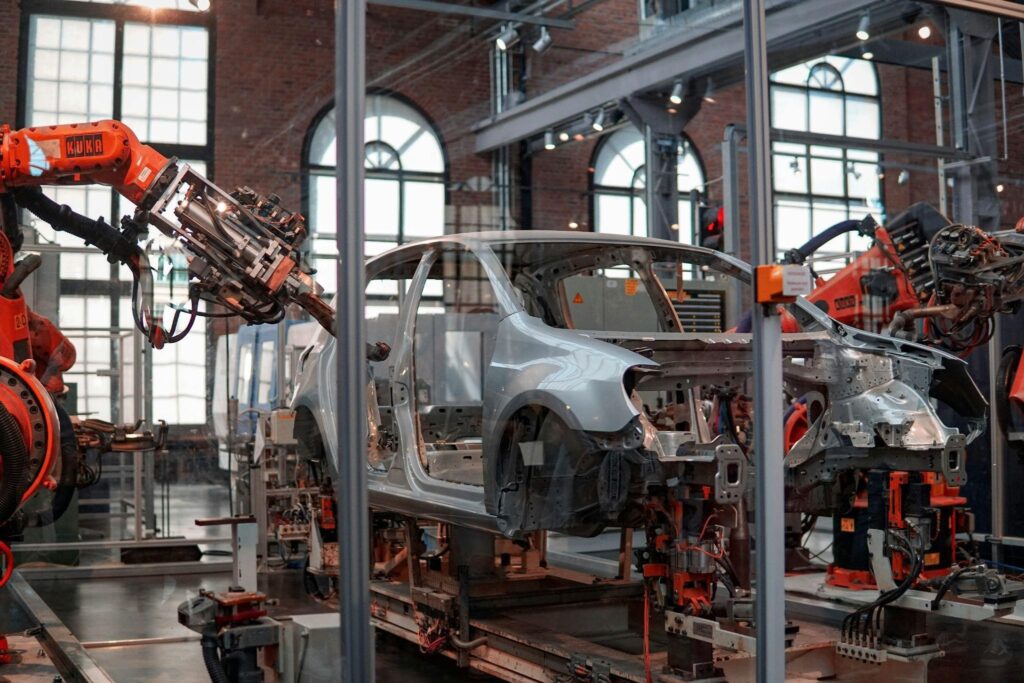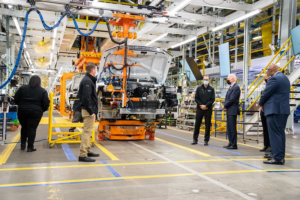
Factory audits serve as a cornerstone in maintaining and enhancing quality control within the auto manufacturing industry. These audits not only scrutinize manufacturing processes and compliance with industry standards but also ensure that the final products meet safety and quality specifications. This article delves into how factory audits uphold the integrity and safety of automotive manufacturing processes.
What Is a Factory Audit in the Context of Auto Manufacturing?
A factory audit in auto manufacturing is a comprehensive evaluation conducted to inspect and assess the quality and safety of the production process. This audit aims to verify that the manufacturing practices adhere to predefined quality standards and regulatory requirements. It includes reviewing various components such as supply chain management, production equipment, and employee expertise.
Certainly! The role of QCADVISOR in auto manufacturing enhances both the efficiency and quality of production. By conducting thorough factory audits, QCADVISOR ensures that automotive components meet stringent industry standards and regulations, which reduces the risk of defects and recalls. Their expertise helps manufacturers streamline operations and optimize supply chain management, leading to improved product reliability and customer satisfaction.
Why Are Factory Audits Critical for Quality Control in Auto Manufacturing?
Factory audits are indispensable for maintaining stringent quality control in auto manufacturing due to several reasons:
- Compliance Assurance: They ensure that manufacturing processes comply with both international and local regulations.
- Risk Mitigation: Audits help in identifying and mitigating risks associated with non-compliance and defects.
- Continuous Improvement: Regular audits promote a culture of continuous improvement and innovation within manufacturing facilities.
How Do Factory Audits Improve Product Quality and Safety?
- Identifying Non-Compliance Issues: Audits help in detecting areas where the manufacturing processes do not comply with the set standards.
- Ensuring Adherence to Safety Standards: They ensure that all safety protocols are strictly followed to avoid any potential hazards.
Key Ways in Which Audits Impact Quality and Safety
- Early detection of potential failure points in the manufacturing process.
- Verification that safety mechanisms are in place and functioning properly.
- Assessment of the quality of raw materials used in production.
- Reinforcement of quality control measures across all stages of production.
What Are the Key Components of a Factory Audit?

Factory audits in auto manufacturing are detailed and structured to cover several critical aspects:
- Review of Manufacturing Processes: Ensuring that the manufacturing procedures adhere to the designed protocols.
- Inspection of Final Products: Checking the final products to ensure they meet quality and safety standards.
- Assessment of Quality Management Systems: Evaluating the effectiveness of the quality management systems in place.
- Evaluation of Compliance with Legal Regulations: Ensuring all operations are compliant with legal standards.
Main Components of a Factory Audit
- Examination of supply chain management to ensure the integrity of raw materials.
- Review of automated systems for consistency and reliability.
- Inspection protocols for final product quality checks.
- Auditing employee training programs for adequacy and effectiveness.
Step-by-Step Guide: How Is a Factory Audit Conducted in Auto Manufacturing?
The process of conducting a factory audit in the auto manufacturing industry is meticulous and involves several key steps:
- Preparation for the Audit: This includes setting the audit scope, reviewing previous audit reports, and preparing necessary tools and checklists.
- On-Site Activities During the Audit: Conducting interviews, inspecting facilities, and observing production processes.
- Post-Audit Follow-up and Reporting: Compiling the audit findings, discussing them with the management, and planning corrective actions.
Key Preparations Necessary for a Successful Audit
- Coordination with department heads to schedule audits.
- Development of a detailed audit agenda.
- Training of audit teams on the latest compliance standards.
What Are Common Findings in Auto Manufacturing Audits?
Audits frequently uncover several issues that could potentially affect the quality and safety of the automotive manufacturing process.
- Examples of Non-Compliance: Inadequate process documentation, failure to follow safety protocols, and use of non-compliant materials.
- Examples of Best Practices Discovered During Audits: Innovative quality control techniques, effective waste reduction strategies, and superior safety measures.
Frequent Issues Discovered During Factory Audits
- Inconsistent adherence to production specifications.
- Inadequate training of staff on new machinery.
- Failure to update quality standards in line with industry advancements.
How to Address Challenges in Factory Audits?

Addressing challenges in factory audits involves several strategic measures:
- Dealing with Resistance from Factory Staff: Implementing change management strategies to encourage cooperation.
- Managing Logistics and Scheduling for International Audits: Using advanced scheduling tools and local audit teams to manage international logistics effectively.
What Are the Benefits of Regular Factory Audits?
Major Advantages of Conducting Regular Audits
- Continuous improvement in product quality and safety.
- Enhanced compliance with global manufacturing standards.
- Strengthened market reputation and consumer trust.
Case Studies: Successful Quality Improvements from Factory Audits
- Case Study 1: A major car manufacturer overhauled its safety inspection processes following an audit, resulting in a 30% reduction in product recalls.
- Case Study 2: An audit led to the implementation of advanced robotic automation, enhancing precision in assembly lines and reducing manual errors.
Future Trends in Factory Audits for Auto Manufacturing
Emerging technologies such as AI and IoT are set to transform factory audits by enabling real-time monitoring and predictive analytics, further enhancing the efficiency and effectiveness of audit processes.
Conclusion
Factory audits are vital in maintaining the high standards required in auto manufacturing. By systematically addressing potential issues and continuously updating audit practices with technological advancements, the industry can ensure the production of high-quality, safe vehicles. Regular audits not only uphold quality and safety but also foster innovation and efficiency, proving indispensable for the automotive sector’s ongoing success.

More Stories
Sonatus – The industry is shifting gears to software
Cybord warns of dangers of the stability illusion
HERE building trust in ADAS systems